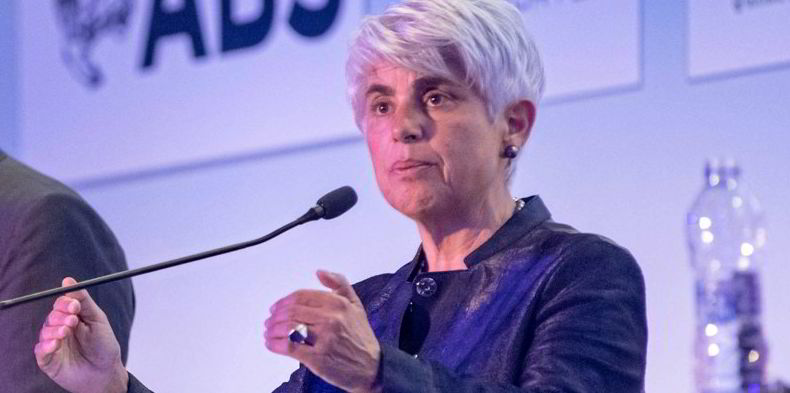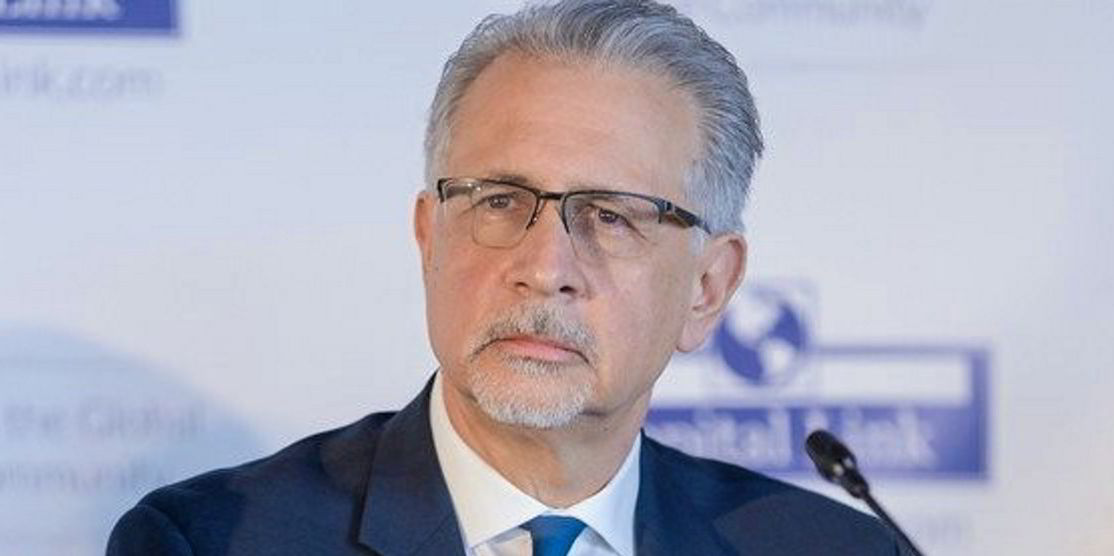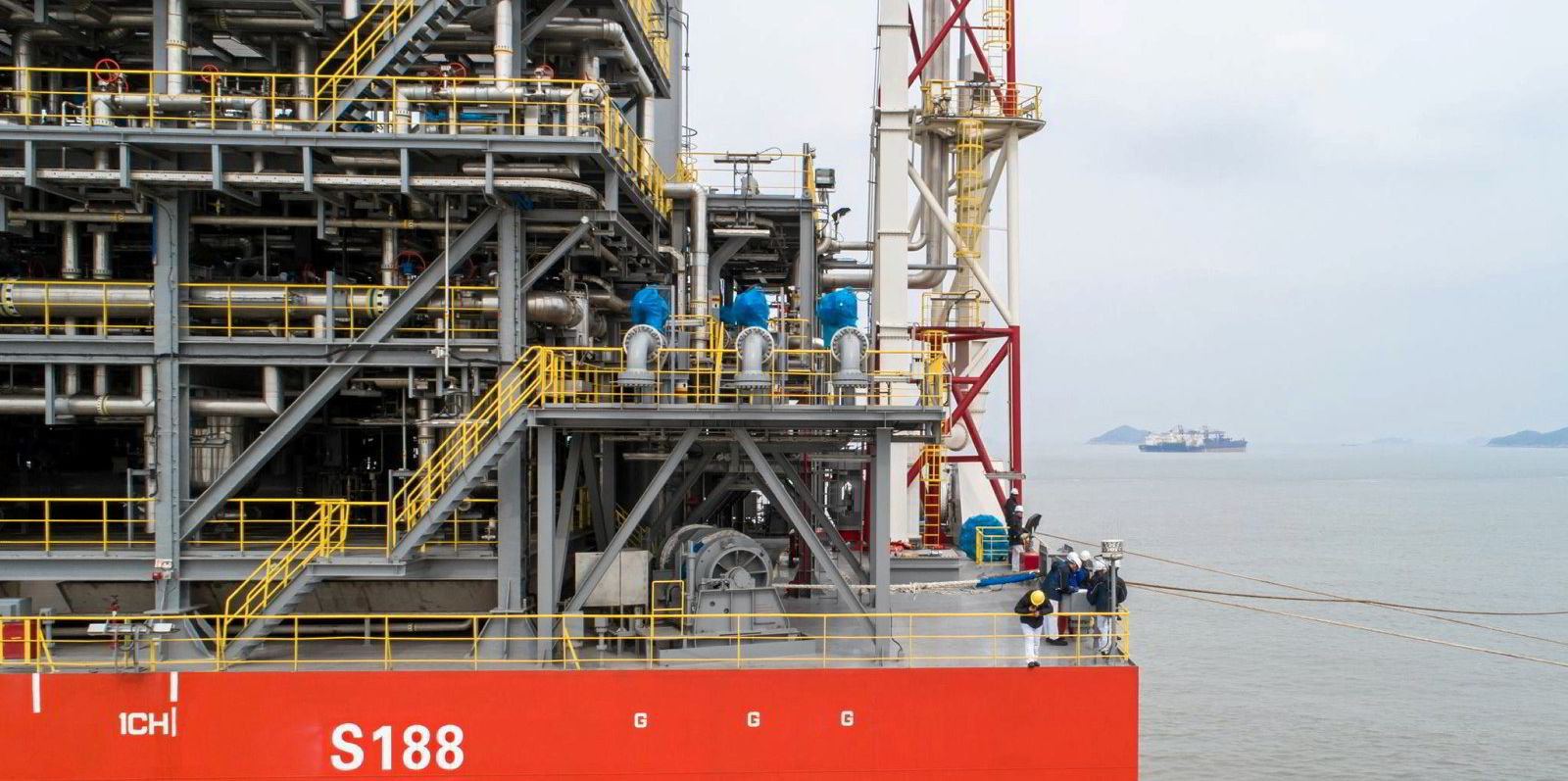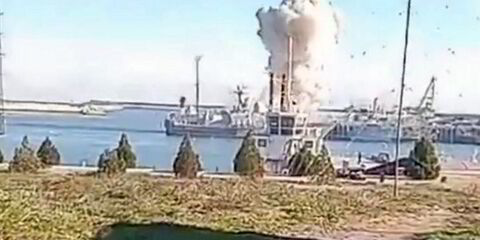When Navios Maritime Holdings sold off its entire bulker fleet to its last remaining public spin-off, the company was left with a new focus: its Uruguayan port and logistics operations.
As it announced the $835m sale of its 36-vessel dry bulk fleet to Navios Maritime Partners, chief executive Angeliki Frangou said the deal marks Navios Holdings’ exit from direct vessel ownership.
The company said it will focus on growing Navios South American Logistics, a Montevideo-based tug and barge operator, shipowner and terminal player in which it has a 63.8% stake.
“Navios is one of the largest logistics and infrastructure providers in the Hidrovia region of South America,” Frangou said during a conference call, referring to the navigable river system that connects the inland regions of Argentina, Bolivia, Brazil, Paraguay and Uruguay to the Atlantic.
“It is situated in a region with great opportunity.”
Frangou said the company’s anchor is a long-term take-or-pay contract with Brazilian mining giant Vale to transship iron ore at Navios Logistics’ port complex in Nueva Palmira, Uruguay.
Still, despite the importance of that contract, its share of Navios Logistics revenues had declined in recent years, from 36.4% in 2019 to 23.4% in 2021.
Once overshadowed by its core bulker business, the Nueva Palmira dry bulk terminal complex is now a key jewel in the company’s crown.
Biggest player
It is the largest independent bulk transfer and storage terminal in Uruguay. Located at the confluence of the Parana and Uruguay rivers, it is protected from the water level issues that affect other Hidrovia ports during droughts.
Navios Logistics’ liquid bulk terminal near the capital, Asuncion, is the largest independent petroleum products storage terminal in Paraguay.

The company’s shipping operation involves a fleet of 30 pushboats and 329 dry, tank and LPG barges, and it owns eight product tankers operating in South American cabotage markets.
“Prospects for Navios Logistics have always been good and are improving,” said Ted Petrone, vice chairman of Navios Holdings’ Navios Corp. “The global focus on food security because of geopolitical tensions is expected to benefit the exports of agricultural commodities from South America.”
Uruguay exports grow
The company has enjoyed a strong start to the year in the grain export business, with exports from Nueva Palmira rising 49% in the first half of the year compared with the same period of 2021, he said.
And the executive, who is also president of Navios Logistics, said the harvest for the 2022-2023 grain season is expected to be even stronger.
| Vessel type | Number of vessels |
| Pushboats | 30 |
| Dry barges | 268 |
| Tank barges | 58 |
| LPG barges | 3 |
| Product tankers | 8 |
In iron ore, Petrone pointed to growing interest in the mining assets in Brazil’s Corumba region, whose exports will travel along the Hidrovia.
He also said Vale’s $1.2bn sale in April of its underutilised iron ore and manganese mines in Brazil’s midwest to J&F Investimentos should lead to production increases.
“The increase in iron ore export volumes benefits barge business and our port terminal,” Petrone said.
The port has capacity to grow volumes, he added, and Navios Logistics has land for new business.
Executives said Navios Logistics was always a core asset for Navios Holdings, and its results are consolidated into those of the parent company.
After the fleet sale, Navios Holdings will have one other key asset: a 10.3% stake in Navios Partners, which will have a fleet of 188 bulkers, container ships and tankers with its parent’s three dozen ships when the deal closes.
“We are comfortable with this position, and we believe there’s significant appreciation potential for our stake, as the net asset value of the company is almost five times the one assigned by the market today,” Petrone said.
The foundations of Navios Partners and Navios Logistics are intertwined.
Navios Holdings already owned the Uruguay terminal when Frangou’s International Shipping Enterprises bought it in 2005.
The company spun off Navios Partners in late 2007. That initial public offering brought an infusion of cash that was quickly used to pay $112m in January 2008 to combine the Uruguay terminal operation with tug and barge owner Horamar Group.
Last year, Navios Logistics delivered nearly $223m in revenue, an operating profit of almost $21.1m and a bottom-line loss of $66.4m after $65.2m in finance costs.
Read more
- Navios Partners swells further with $835m purchase of parent company’s 36 bulkers
- Navios Partners to follow big acquisition with $100m stock buyback plan
- Navios Partners scores new loans as revenue surge lifts quarterly profit
- Navios shares rocket from starting gate as investors embrace acquisition
- Editor’s Selection: Navios consolidates, DSME’s woes and Europe’s FSRU capacity crunch





